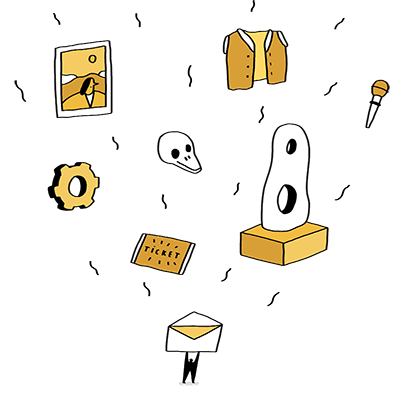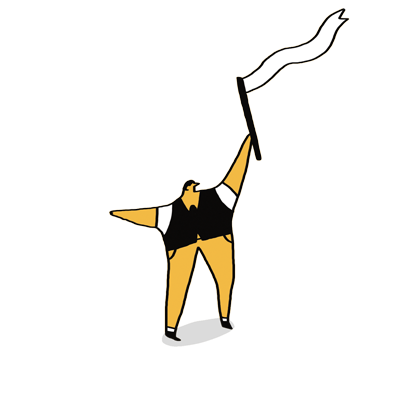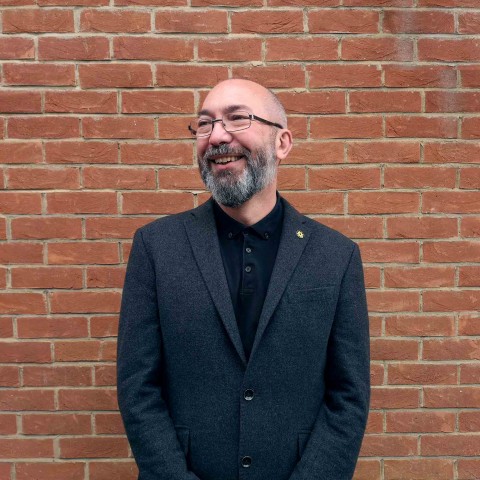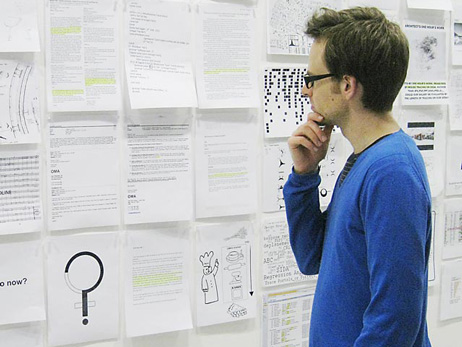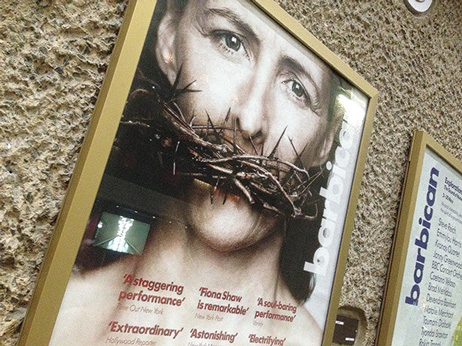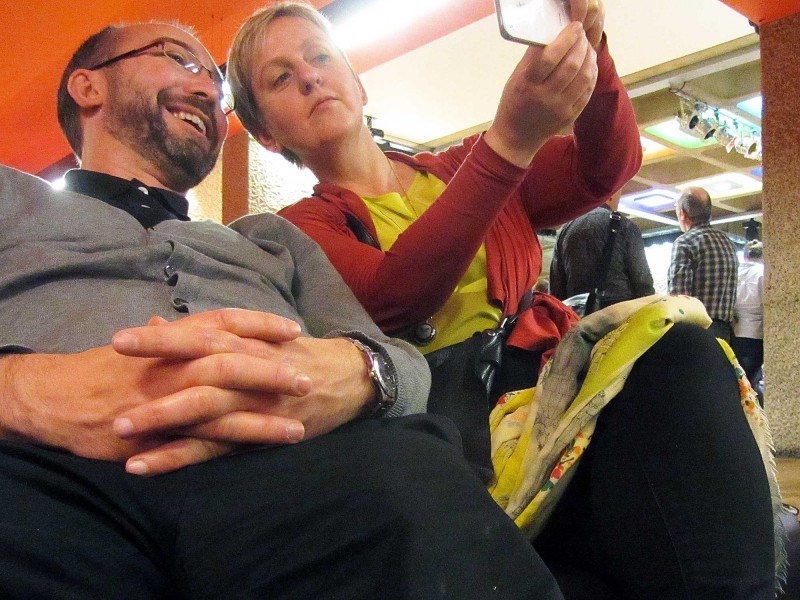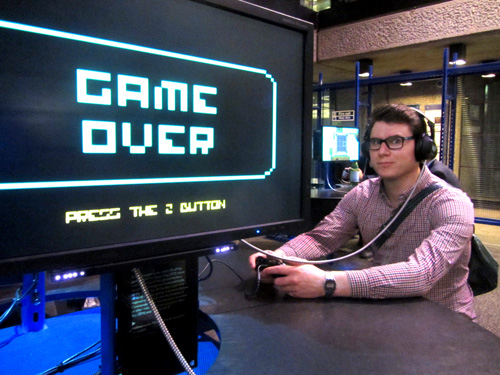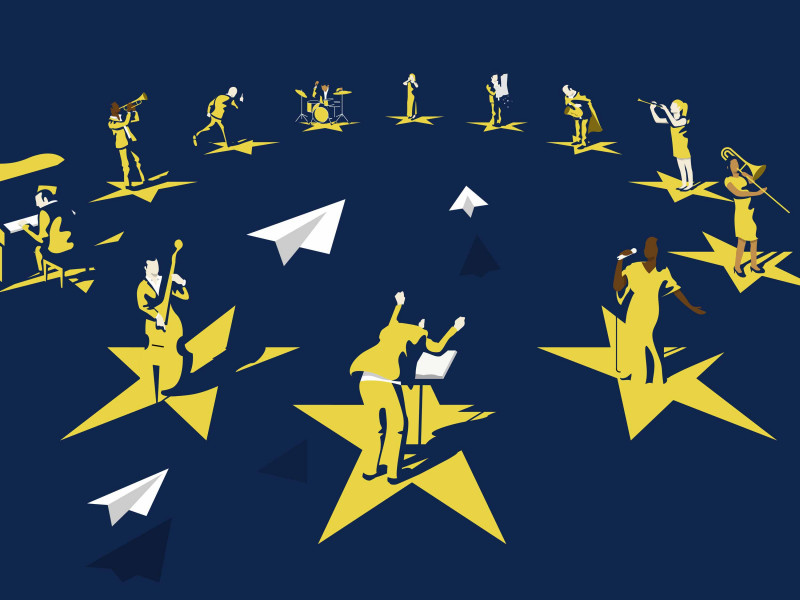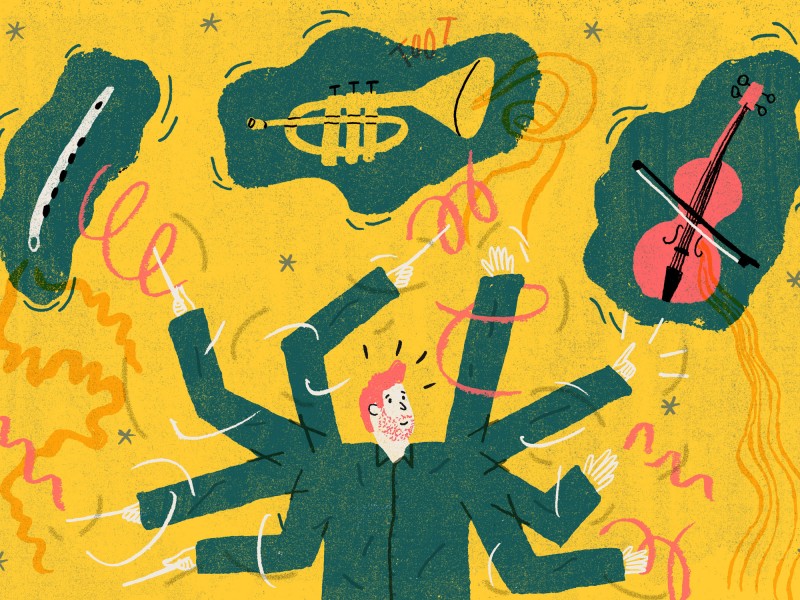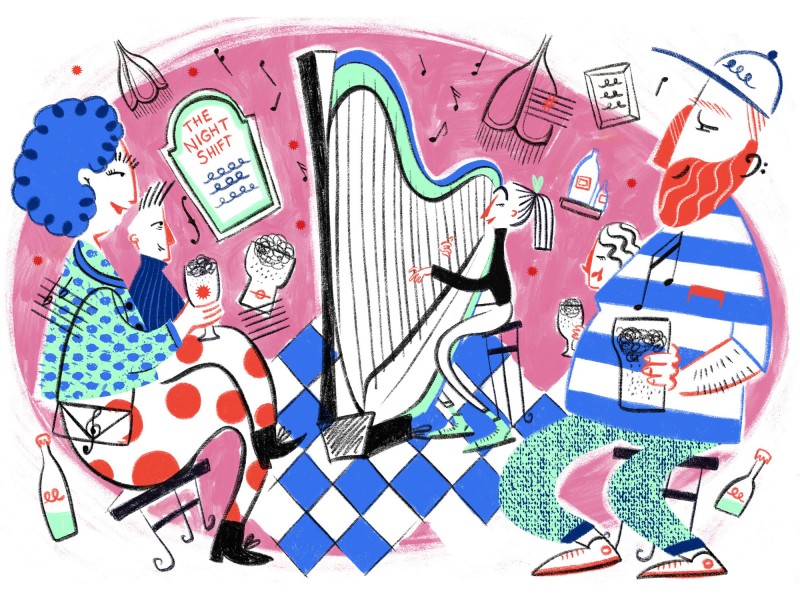Often described, by people who should know better, as the punk pioneers of classical, Kronos really have (alongside their English contemporaries, Arditti Quartet) redefined the string quartet and its repertoire – they have commissioned hundreds of new pieces, including commissions from many unlikely collaborators. Tonight they celebrate 40 years of doing just that.
Kronos at 40
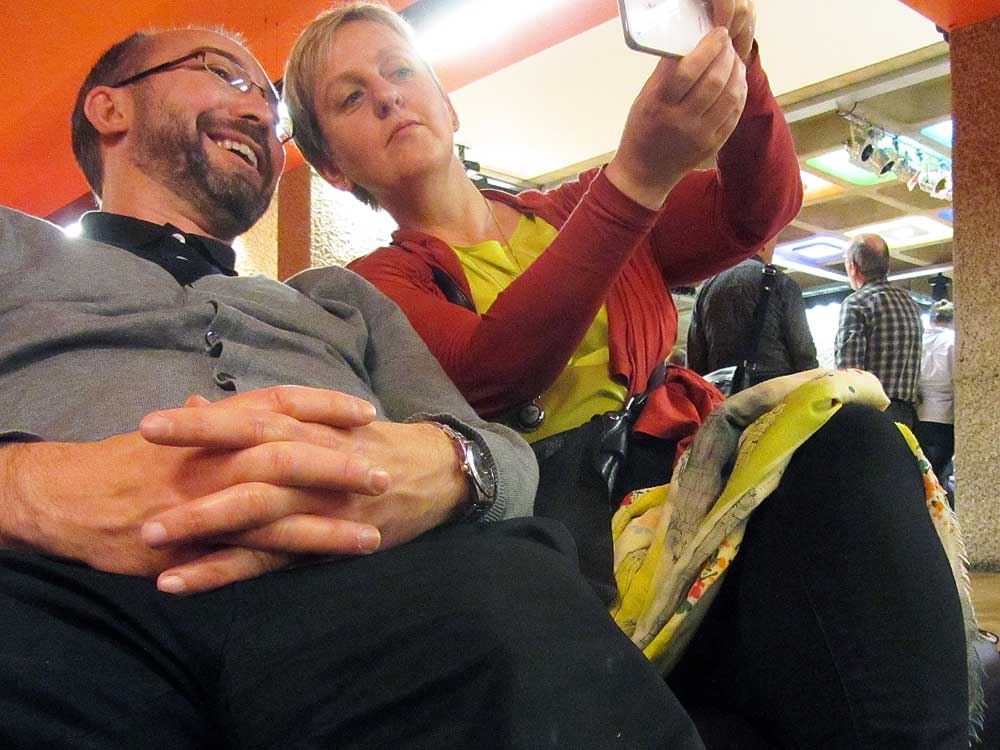
Through my work at Cog, I’ve been lucky enough to be exposed to some amazing contemporary classical music. In the past two decades or so, I’ve worked on publicity design for a dozen concerts by Californian-based string quartet, Kronos. It was with our long-time clients Serious that we did most work for Kronos (Serious continue to be Kronos’s representative in the UK).
The show opened with a film by Sam Green (not the one shown to the right), a snap shot of the past four decades. How many other classical artists could show a clip of Big Bird talking to them on Sesame Street?
It was at Serious that I first met Cathy Gallagher, then their marketing manager, later my partner in a new business, and always a friend with whom I’ve been to countless contemporary music concerts. So it made perfect sense that I would join Cathy, once again, to see Kronos at the Barbican, this time for their 40th anniversary celebratory concert, featuring an eclectic mix of world and UK premières.
The show opened with a film by Sam Green (not the one shown to the right), a snap shot of the past four decades. How many other classical artists could show a clip of Big Bird talking to them on Sesame Street?
The first half’s music began with the UK première of Terry Riley’s, The Serquent Risadome. It is apparently based on the the Jaberwocky and I found it just as incomprehensible, not exciting and challenging, but often impenetrable. David Harrington (founder and nominal leader of the quartet) quipped that they would give a prize for the best definition of the title.
Philip Glass’s String Quartet No 6 (UK Premiere) was next and I struggled even more with that, for the whole half hour of the piece. Finally, Bruce Dessner (guitarist with The National) took to the stage to perform the world premiere of 40 Canons. There were moments where I was drawn back in, where the sweeping arcs of music perfectly evoked the Canon/Canyon interplay. But it still all felt pretty tame from a rock-star/punk quartet collaboration.
Out into the interval and there was some disquiet. The show had started at 8pm and was already overrunning by a fair amount. People were beginning to worry about how they’d get home, not a good omen for the second half.
Back in for the second half and I was dreading the world premiere of KERF: a dialogue between a saw, an electric organ and a string quartet. David Coulter may be a great talent but has there ever been a great piece performed on saw? Well, as is often the case, I was wrong, for me this was the stand-out piece of the evening. Despite the title, this was an unpretentious and beautiful exploration of harmonics. I’m not sure Jarvis Cocker’s organ contributed much but his presence brought a sense of excitement to the audience.
The final piece on the programme was Ukrainian composer Mariana Sadovska’s: Chernobyl, The Harvest. Sung in four parts by Sadovska herself, the song cycle uses traditional Ukrainian, ceremonial music to evoke the feelings of sorrow and isolation after the nuclear disaster. The piece was sometimes haunting and I’m sure it was very moving to those who understood the words. But, despite, her obvious talent, Sadovska’s vocals pushed for but never really reached the soaring heights or emotional resonance that I was expecting.
After taking their bows, leaving, returning, bowing, leaving and returning again, it looked like they were all ready to settle in for a lengthy encore. I shuffled down the aisle, made my excuses and left.
In many ways, I thoroughly enjoyed the evening. Reliving memories and being part of such an occasion felt very special. It was obvious, from the smiles on their faces, that Kronos Quartet were having a ball. For me, the big disappointment was the choice of programme, which made the concert a metaphor for how I felt, leaving early and rushing for the last train home – uninspired, conventional and pretty tired.
